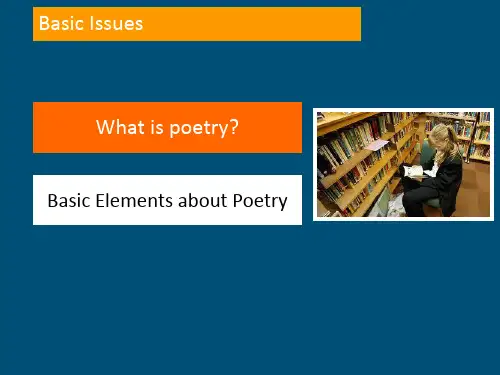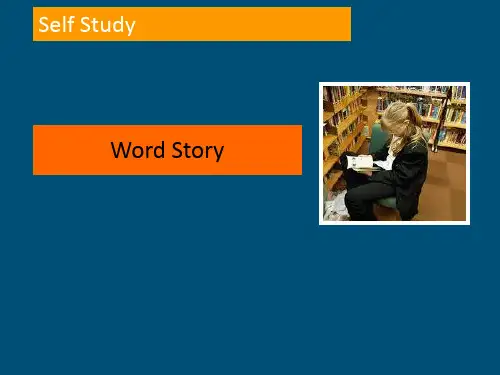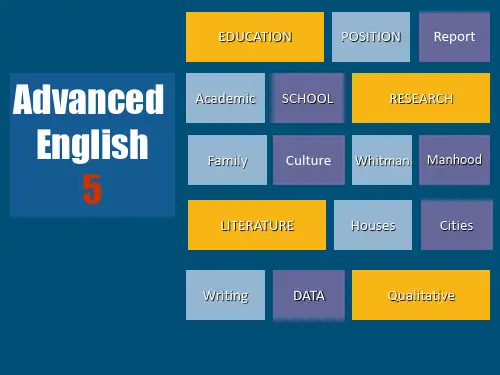综合英语教程(第三版)5电子教案unit7section1
- 格式:ppt
- 大小:3.07 MB
- 文档页数:41

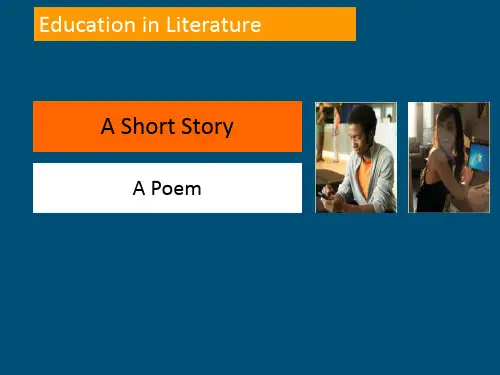
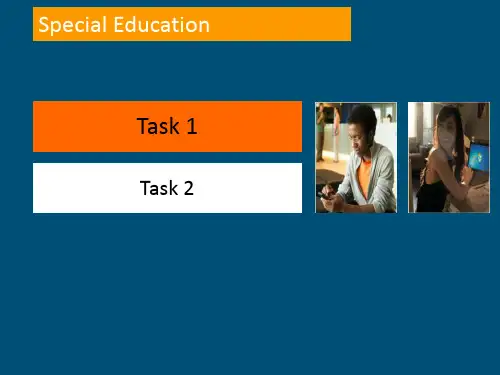
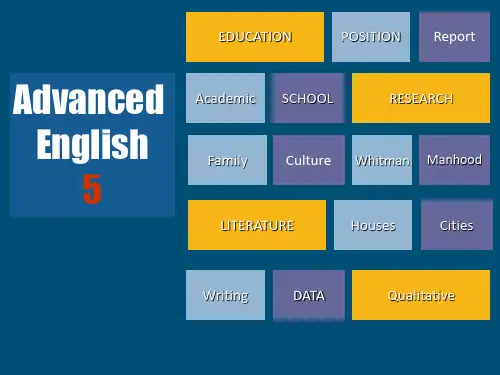
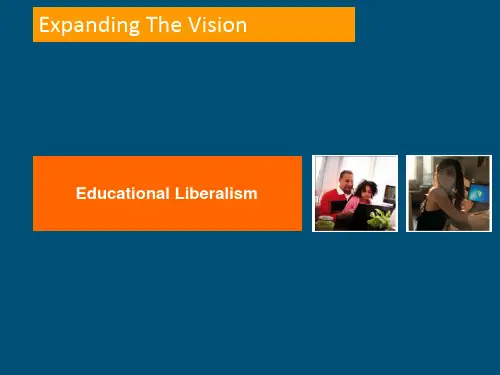
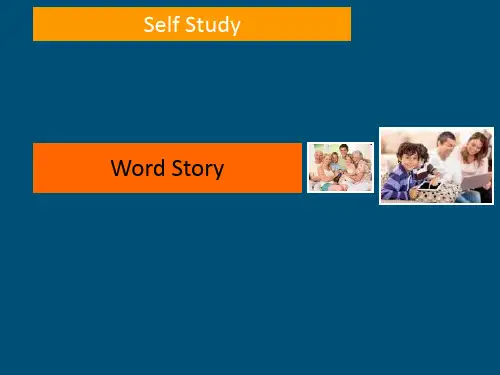
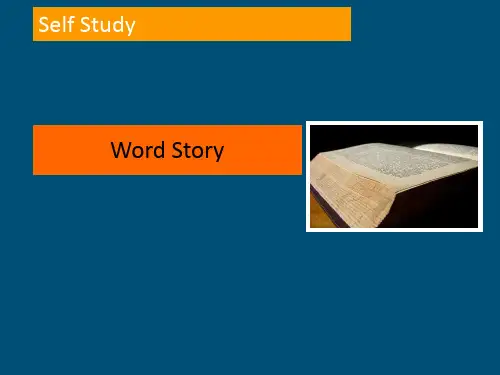
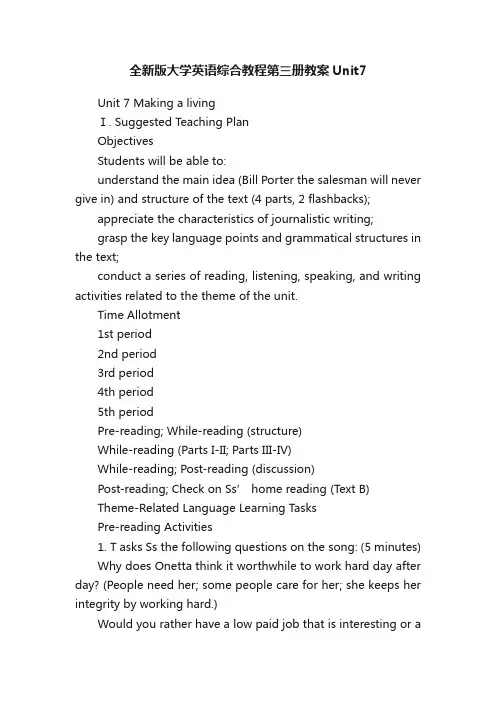
全新版大学英语综合教程第三册教案Unit7Unit 7 Making a livingⅠ. Suggested Teaching PlanObjectivesStudents will be able to:understand the main idea (Bill Porter the salesman will never give in) and structure of the text (4 parts, 2 flashbacks);appreciate the characteristics of journalistic writing;grasp the key language points and grammatical structures in the text;conduct a series of reading, listening, speaking, and writing activities related to the theme of the unit.Time Allotment1st period2nd period3rd period4th period5th periodPre-reading; While-reading (structure)While-reading (Parts I-II; Parts III-IV)While-reading; Post-reading (discussion)Post-reading; Check on Ss’ home reading (Text B)Theme-Related Language Learning T asksPre-reading Activities1. T asks Ss the following questions on the song: (5 minutes)Why does Onetta think it worthwhile to work hard day after day? (People need her; some people care for her; she keeps her integrity by working hard.)Would you rather have a low paid job that is interesting or awell-paid job that is boring?2. Role play: Classroom salesman (25 minutes)T lets Ss read the title of Text A, then announces that the class is to do a role-play. One student will act as a salesperson. All other students will act as his / her potential customers.T appoints a student with a relatively advanced level of English to act as the salesperson. He / She will leave the classroom, think of a product to sell, and plan his / her sales talk. The product should be relevant to campus life.After the salesperson leaves the classroom, T selects several Ss at random. Only they can buy from the salesperson. All other Ss must come up with an excuse not to buy.T invites the salesperson back into the classroom. He / she has 10 minutes to close a deal.Ss discuss with their neighbors the qualities of a good salesperson.3. T leads in to the text by saying: From the role-play we know the sale of goods is rather a difficult job. It is even more difficult for a handicapped person, like Bill Porter in Text A. (1 minutes) While-reading activities1. Text structure (9 minutes)1) Ss scan the text to see if there is any natural division of parts in the text. (Asterisks divide the text into 4 parts.) Ss read the first paragraph of each part, locate the time words or references to time. (They are: 5:45, 7:45, “This is the moment he’s been preparing for since 5:45 a.m.”, after 7 p.m.) By then Ss will realize that the text is about a typical day of salesman Bill Porter.T explains language points in Parts I - II and gives Ss practice (see Language Study). (25 minutes) Ss re-read Parts I - II to finda flashback. Then, by reading the sentences preceding and following the flashback, they will see how skillfully it is woven into the narration. (10 minutes)T explains language points in Parts Ⅲ-Ⅳand gives Ss practice (see Language Study). (35 minutes)Ss re-read Parts III — IV to find another flashback. Then, by reading the sentences preceding and following the flashback, they will see how skillfully it is woven into the narration. (10 minutes)Post-reading Activities1. Group discussion (25 minutes)1) Ss form groups to discuss the following questions:What has Bill Porter been struggling for all his life? Do you think it is worth his efforts?How do you feel about Bill Porter? Why?What characteristics of journalistic writing do you find in this article?Some groups report to class.T explains in more detail the characteristics of journalistic writing (see Text Analysis).T guides Ss through some after-text exercises. (30 minutes) T checks on Ss’ home reading (Text B). (3 minutes)Ss do Part IV: Theme-Related Language Learning Tasks. (1 period)T asks Ss to prepare for the next unit: (2 minutes)do the pre-reading task;preview Text A.Ⅱ.Text AnalysisThis article first appeared in a newspaper; therefore it carries many characteristics of journalistic writing.First of all, a journalist tries to be objective in reporting. As a result, third-person narrative is usually preferred over first-person narrative. Moreover, the journalist would not make any comments to reveal his / her feelings, but simply give the facts.Secondly, an eye-catching beginning helps lure readers to linger more on the story out of an overwhelming number of stories offered by the day’s newspaper. For example, at the beginning of this story, we learn that it takes our physically deformed hero great efforts to get up so as to do something important, yet what is this something? We are kept in suspense until the fourth paragraph.Thirdly, the vocabulary is simple, the sentences and paragraphs short, sometimes elliptical (see after-text exercise on ellipsis). When needs (for emphasis, to list a series of rapidly conducted activities, etc.) arise, a paragraph is as short as one sentence.Lastly, conversations can be transcribed word for word if they illustrate the theme, like the one in the text between Bill Porter and his indecisive female customer.Ⅲ. Cultural Notes1. Salesmanship: Sales promotion is an element of the marketing process that can close the sale of goods or services to a potential customer by providing the incentive to make a positive purchasing decision. Sales promotion, advertising, and salesmanship are the major techniques used in merchandising products to the public. Salesmanship often takes the form of a face-to-face encounter between the buyer and seller; the presentation is set up to convince customers that the product on sale is essential to their satisfaction. The lack of personal feedback between buyer and seller is sometimes considered adrawback of the advertising approach. Selling by telephone, although it is significantly less effective than personal selling, is still considered an important method of merchandising. In the 1980s, a growing promotional technique involved in-home shopping programs using cable television channels. In recent years with the help of the Internet online shopping is becoming popular.The traveling salesman appeared late in the 19th century both in Europe and in the U.S. The early itinerant peddler carried his goods on his back or on his horse, working his way from a port city through the hinterlands. With the coming of the railroad and the assurance given to sellers by new credit-reporting systems, salesmen with their sample cases moved across the land. Persuasive skill was less important in those days of unsatisfied demand, and orders were readily forthcoming. By 1900, however, with the increasing supply of manufactured goods, buyers became more discriminating in their purchases. Greater attention was given to training the sales force and to providing buyer incentives. The growth of industrialization and urban living led to the development of merchandising as a major business endeavor. The use of sales promotion practices experienced steady growth in the 20th century.The techniques of sales promotion are used both to motivate salespersons to improve their performance and to induce consumers to purchase goods and services. Although sales promotion works most closely with advertising, it is also related to other elements of marketing: production services, packaging, price, and distribution. At the manufacturing and wholesale levels of distri-bution, the methods used to motivate personnel to meet specific goals usually fall into two categories —salesincentive prizes (such as merchandise, travel, or cash awards) and sales contests. Both are based upon the salesperson reaching an objective above the normal salesquota.Consumer promotions encompass a wide variety of techniques, including sampling of goods or services, store redeemable “money-off’ coupons to encourage the trial of products, special price-reduced packages, mail-in premium merchandise offers, cash or coupon refunds by mail, special product packaging, contests, and sweepstakes. During recessionary periods, when the demand for consumer expendable dollars becomes more competitive, there is greater participa-tion in refund, coupon, and premium offers. More than half the households in the U.S. take advantage of some sales promotion offers each year.Sales promotion, now fully recognized as a vital element in the marketing mix, has become a multibillion dollar industry. In recent years, sales promotion expenditures have exceeded monies spent on advertising and there are strong indications that this pattern of growth will continue to maintain its economic edge.Ⅳ. Language Study1. linger: 1) spend a long time doing sth.Examples: My daughter used to linger long over her meal.There will be no time to linger—the press conference will begin in a few minutes.2) stay for a long time, esp. because one does not want to leaveExamples: It is a dreary little town where few people would choose to linger.He was still lingering around the stadium long after the game was over.2. scar: a mark left on the skin by a wound, burn, etc. after it has healedExamples: It’s easy to recognize the little boy because he has a scar on his left arm.The witness told the police that the criminal had a scar on his forehead.vt. leave a scar onExamples: The burns were so severe that he will be scarred for life.Her face was scarred by smallpox.So, too, do the voices of those who...: The voices of those who ... also echo in his soul. dignity: the quality of being worthy of honor or respectExamples: A physician shall be dedicated to providing competent medical service with com-passion and respect for human dignity.Some think that cloned human beings will be deprived of freedom or dignity or personal identity. They hold on to the faith that the value of life depends on its dignity and not its success.5. cripple: 1) cause to become unable to move or walk properlyExamples: At the beginning of the year 2000 crippled children were on state lists to receive care.Peter’s father was crippled by a stroke.2) damage or harm (sb./sth.) seriouslyExamples: Shootings and robberies of tourists over the past several years had crippled the tourist industry in Miami. The terrorists’ attack has not crippled the US economy.6. betray: show a lack of loyalty to; give or show (sb. / sth.) to an enemyExamples: According to the Gospels of Matthew and Mark, greed made Judas betray Jesus to the chief priest for 30 pieces of silver.He was accused of betraying his country during the war.It turned out that he was an informer, and, betrayed the plan to the Germans.7. gain on: come closer to, esp. a rival or sth. pursuedExamples: Hurry up — they are gaining on us!She was gaining on her opponents throughout the race, but only overtook them at the very end.8. tremble: shake from cold, fear, weakness, etc.Examples: Her hands grew very cold and trembled so that she could hardly hold the flag. Madison was extremely pale and trembled excessively as he began his inaugural address.For much of the day the pavements tremble from the weight of passing traffic.9. kick up: (cause to) riseExamples: The horses kicked up a cloud of dust.The boys kicked up the leaves that lay thick upon the ground with the coming of autumn.10. tilt: (cause to) move into a sloping positionExamples: The pilot can tilt the helicopter forward, backward, or to either side.In the northern hemisphere, the sun climbs high in the sky and the days are long in summer, when the northern end of th e earth’s axis is tilted toward the sun.n.Examples: The Leaning Tower of Pisa is renowned for itsmarked tilt.The amount of daylight in a day varies throughout the year, based on the tilt of Earth’s axis.11. lean: (cause to) be in a sloping position; bendExamples: He leaned his bike against the wall.She leaned over the bridge to look at the boats passing beneath it.a. producing little of value; containing little or no fatExamples: The company has apparently recovered from several lean years.The recession and lean state budgets continued to trouble school officials.We like to eat very lean and tender meat.12. delivery: 1) the process of birthExamples: Women who do manual work have easy deliveries. In the end, it was an easy delivery:a fine baby boy.2) the delivering of letters, goods, etc.Examples: Federal Express Corporation provide rapid delivery of packages, letters, and other shipments within the United States and worldwide.Most newspapers offer home delivery.13. section: any of the parts into which sth. is dividedExamples: This article consists of ten major sections.Newspapers typically have sections for local news, sports, arts and entertainment, business, and classified advertising.14. disorder: disturbance of the normal working of the body or mind; lack of order Examples: Severe vitamin and mineral deficiencies can lead to mental disorders. Acupuncture is an ancient Chinese practice that treats disorders by insertingneedles under the skin.The school authorities took immediate action to stop campus violence and disorder.15. transfer: move from one place to another (usu. used in the pattern: transfer sth. / sb. (from...to)) Examples: Transferring Peter from Tokyo to the Boston office was a smart idea. Power was transferred from the President to the Vice President while the President received medical treatment.Commercial airports are designed to transfer passengers and freight to and from aircraft. Creditsearned at junior colleges could be transferred to another institution where students could complete their final years of college.He was transferred from Crystal Palace to Arsenal for £ 2.5 million.16. limitation: lack of abilityExamples: Electric cars could travel only a short distance before they needed recharging, due to the limitations of battery technology.Acupuncture is good for some medical conditions but it has its limitations.As a student he recognized his limitations, but did little to improve himself.17. apply for: make a formal request forExamples: I applied for five jobs before I was offered this one.According to the school regulations students will have to apply for permission to study abroad. 18. representative: a person who represents othersExamples: Egypt, Israel, and the representatives of the Palestinian people will participate in negotiations on theresolution of the Palestinian problem.Representatives from more than 170 nations converged on Paris for the Earth Summit.19. literature: 1) printed material used to advertise or promote a productExamples: My friend is sending me literature from two other companies that provide a similar service.There is quite a lot of literature available on the history of computers.2) writings that are valued as works of artExamples: Many readers consider the novel the most flexible type of literature.The graduate school offers master’s or doctoral degree programs for advanced study in such liberal arts and science fields as history, chemistry, physics, and literature.20. pledge: a solemn promiseExamples: They made a pledge to accomplish the task.The boy made a pledge to get straight A’s at the end of the semester.vt.Examples: Member nations of the UN pledge to settle their disputes peacefully and to refrain from using force.They have pledged not to dump hazardous wastes into the river.21. retail: the practice of selling goods in small quantities to the general publicExamples: Wal-Mart is a company that operates a variety of retail chain stores.Department stores refer to large retail stores selling many different kinds of merchandise arranged in separate departments.22. transit: passage through or across; a system of urban public transportationExamples: Our fleet made the transit through the Panama Canal without any difficulty.The president wants to improve the nation’s highways and mass transit systems.23. strain: injure (the body or the part of it) or make it weak by too much effortExamples: Swimming does not strain joints and connective tissue as much as many other forms of exercise.He strained his back when he removed the piano with his friends.n. a severe demand on mental or physical strength, resources, abilities, etc. (followed by on) Examples: Some young white collar workers are complaining about their job strain.She has been under terrible strain since her company was bankrupted.The vast expansion in college education is putting an enormous strain on the system.24. useless: not fulfilling the intended purposeExamples: Preventing the country from purchasing oil crippled its army and made its navy and air force completely useless.Overpopulation and overcropping are turning approximately 14 million acres a year of formerly fertile land into barren and economically useless wasteland.25. limb: a leg or an arm; a large branch of a treeExamples: The small size a nd weight of dogs’ feet and limbs require less energy to move.No attempt should be made to move broken limbs untilmedical help arrives.The flag was hanging from the limb of a big tree.26. off balance: in an unsteady position or about to fallExamples: The motorcycle knocked him off balance and he fell down on the ground.The sudden pull threw me off balance.27. territory: land a country controls or ownsExamples: The government denies that any of its territory is under rebel control.A country’s embass y in a foreign country is considered its own territory.28. on the phone: be talking to sb. using the phoneExamples: Please wait outside for a moment; the manager is on the phone.She is always on the phone, wanting to know what her husband has been up to.29. register: 1) be recognized or noted mentallyExamples: On occasions what I said didn’t register in my daughter’s brain.The professor’s name didn’t register with the students.2) record a name, an event, etc. for official purposesExamples: The new students were told that they must register with the University before they could claim their grants.The newly purchased apartment is registered in her name, not her husband’s.30. laundry: clothes or sheets, etc. that have been or need to be washedExamples: The new model washing machine offers numerous settings for washing different types and quantities of laundry.A good deal of laundry had accumulated during the past twoweeks, as our washing machine didn’t work.31. profitable: bringing profit or advantageExamples: The trading department of the investment bank buys and sells securities when prof-itable opportunities arise.Based in New York City, Random House owns many of the most prestigious and profitable book publishing companies in the United States.The trade of opium, a highly profitable product for British merchants and eventually an illegal import into China, led to the Opium Wars.I didn’t find the talk very profitable. On the contrary, I thought it was nonsense.32. off one’s feet: no longer s tandingExamples: After the operation the old man had to stay off his feet.The doctor checked his left foot carefully and said he would have to stay off his feet for about two weeks.33. commission: money paid to sb. for selling goods which increases with the quantity of goodssoldExamples: If a salesperson is paid on commission, the amount they receive depends on the amount they sell.Peter gets 10% commission on every photocopier he sells.34. surgery: treatment of injuries or diseases by cutting or removing parts of the body Examples: People have practiced surgery since ancient times, but it did not become a respected science the 19th cent the 19th century.Surgery is the fastest and most effective treatment for tumors that are detected early.35. be laid up (with): stay in bed, be unable to work, etc.Examples: Our math teacher has been laid up in bed with acute flu for a week.The football player was laid up with a twisted knee.36. signature: a person’s name written by herself or himselfExamples: In law, signatures are put at the end of a legal instrument to show that it is valid.A testator unable to write may make an X, and such a mark is considered a valid signature.37. in time: punctually, not too late; eventuallyExamples: The couple have just arrived in time for lunch.She set the alarm so she would wake up in time to go to school.38. go off: (of electric power, a light, etc.) stop functioning or operatingExamples: All the lights suddenly went off and the stadium was plunged into darkness.。
